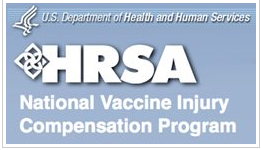
Story Summary
- Federal law protects student vaccine information gathered by schools from being shared without parental consent;
- School directory information can be shared by schools without consent, unless parents take action;
- Federal health and safety exceptions exist that allow schools to share student vaccine information without parental consent;
- Schools that don't receive federal funding are not subject to FERPA privacy requirements.
With school enrollment underway and the likelihood of the COVID-19 vaccine being approved for annual use, we encourage families to review student privacy protections to prevent your student’s information from being shared without consent.
The Family Educational Rights and Privacy Act (FERPA) is a federal law designed to protect student information from being shared by schools without the consent of parents, guardians, and adult students.1
Privacy Rights Notification Required Annually
Schools, colleges, and universities subject to FERPA must provide parents, guardians, and adult students with a notification about FERPA rights annually.2 This notification is usually part of a student’s enrollment package.
Notably, schools can share student directory information with third parties without consent. Directory information typically includes the student’s name, address, telephone listing, and date of birth and is designated by the student’s school.3 The annual FERPA notice issued by your school will describe the steps to prohibit the school from sharing directory information and the associated deadlines.
Below are additional protections offered by FERPA.
- May protect against the sharing of vaccination status and personally identifiable information with your state’s vaccine registry and health department;
- Protects records gathered by schools and prohibits sharing those records without specific written consent from parents, guardians, or the adult student.
- FERPA is separate from the Health Insurance Portability and Accountability Act of 1996 (HIPAA)4 in the educational environment. In most situations, FERPA prevails over HIPAA in the academic setting and protects health information;5
Filing a Privacy Violation Report
Under FERPA, violations must be reported within 180 days of the violation. The complaint is filed with the form provided to parents and guardians on the U.S. Department of Education’s website.6
FERPA Privacy Exceptions
There are exceptions to privacy protections under FERPA. Some of these exceptions include health and safety issues, and these disclosures must be recorded in the student’s educational record and provided to parents and guardians upon request.7
If your school doesn’t receive federal funding, it is not subject to FERPA. In that case, inform yourself and obtain a copy of the school’s privacy policies to understand what information can and cannot be shared without consent.
You can learn more about FERPA, disclosure of student information, and the exceptions to privacy by visiting NVIC’s FERPA & Student Privacy FAQ.
References:
1 U.S. Department of Education. Family Educational Rights and Privacy Act of 1974 (FERPA). Mar. 1, 2018.
2 U.S. Department of Education. Family Educational Rights and Privacy Act of 1974 (FERPA). Mar. 1, 2018.
3 U.S. Department of Education. Directory Information. In: Protecting Student Privacy. Accessed Aug. 14, 2023.
4 U.S. Department of Health and Humans Services. Summary of the HIPAA Privacy Rule. Jul. 26, 2013
5 U.S. Department of Education. Protecting Student Privacy – File a Complaint. Accessed Jul. 13, 2018.
6 U.S. Department of Education. File a Complaint - FERPA Complaint Form. In: Protecting Student Privacy. Accessed Aug. 14, 2023.
7 U.S. Department of Education. FERPA Health and Safety Search Results. In: Protecting Student Privacy. Accessed Aug. 14, 2023.





.png?width=991&height=280&ext=.png)


Leave a comment
Your email address will not be published. Required fields are marked with an *